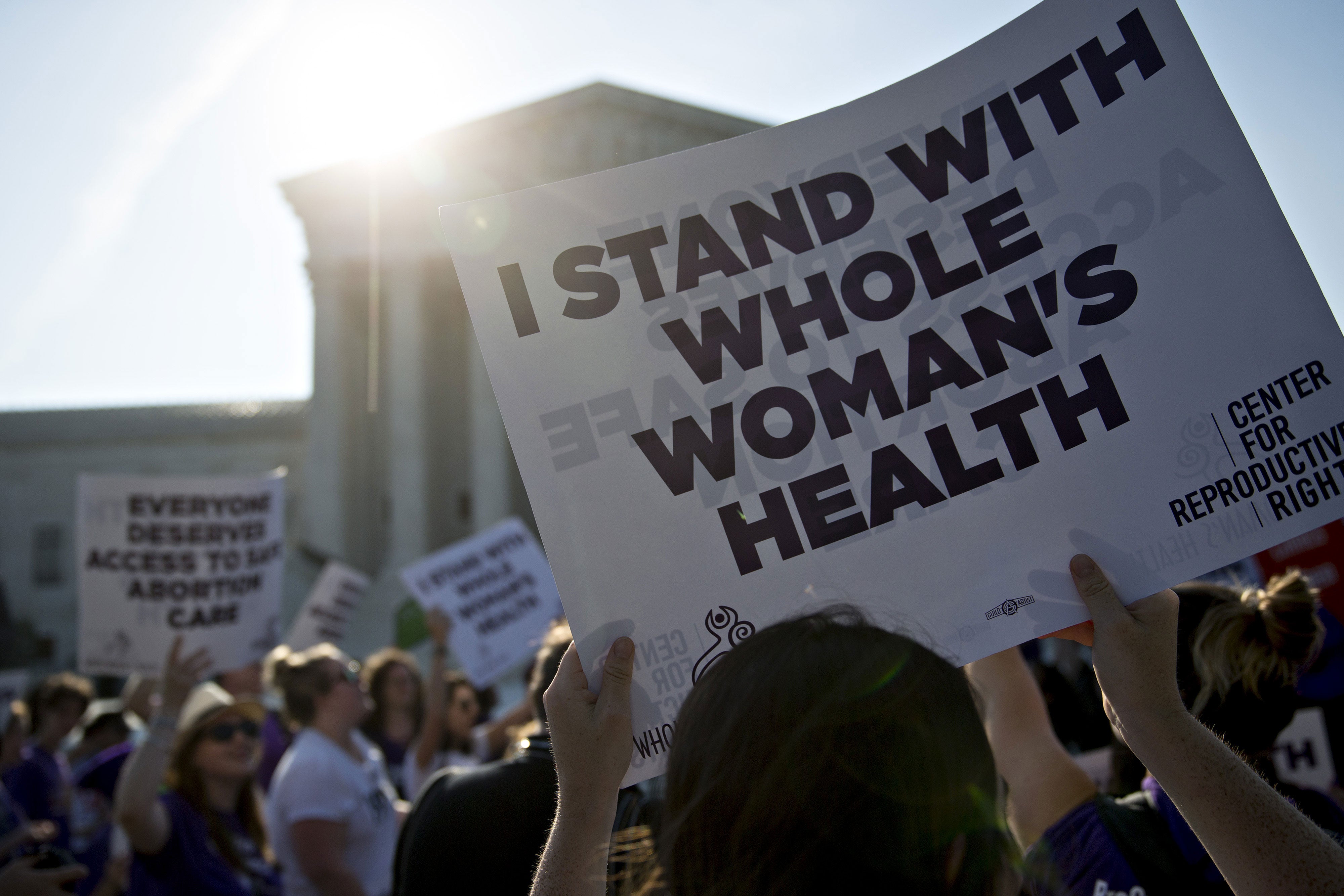
Today in a historic 5-3 decision, the U.S. Supreme Court struck down a Texas law designed to use medically unnecessary restrictions to shut down most of the state’s abortion clinics. The decision reaffirms a woman’s constitutional right to access safe, legal abortion, but for poor women, especially women of color in the South, it may mean much more.
I’ve been following this case very closely—I recently made a documentary called TRAPPED, which documents the experiences of patients, clinic workers and a remarkable African-American doctor named Willie Parker.
Making a film about abortion can unsettle you for many reasons. Hearing women tell you they would love to have another child if only they could feed the ones they already have will break your heart. When I met these women, it occurred to me that if you’ve never had an abortion, you can’t know how much internal conflict accompanies that choice.
Protecting Our Reproductive Rights: What We Face If Planned Parenthood Is Defunded
But I also have a very personal connection to this story and I didn’t even start to fully understand it until I started researching for a short documentary that I’m producing for ESSENCE and TIME magazines.
My grandfather was a family doctor in Harlem in the 1950s. He would sometimes travel south to North Carolina to help his cousin Albert, another doctor, who had more work than he could handle. Sometimes he was paid in chickens by grateful people who didn’t have money to spare.
When you are a country doctor, particularly one trained as a surgeon, you do a little bit of everything. I’m told my grandfather performed abortions. (Albert was Catholic and did not believe in abortion, even though he performed them.) My grandfather never had any trouble, but Albert was accused of performing an abortion on a White woman. The Klan came to Albert’s house two times before the local police arrested him and sent him to jail for performing an illegal abortion—a crime he says he didn’t commit. The simple idea of a Black man performing an abortion on a White woman was enough to convict Albert, even though the alleged victim was not even aware of the charges until after he was convicted.
Race still plays a role in abortion politics. At abortion clinics across the South, White protestors hold pictures of Black babies as they shout at women entering the clinics. And, it’s not just White protesters. Even though polls show that most African-Americans describe themselves as pro-choice, there are scores of Black anti-abortion activists who also use race in their anti-choice rhetoric. The truth is, most women who receive abortions are White, but Black women are five times more likely than White women to get an abortion. But this statistic doesn’t tell the full story. It doesn’t tell you that the overwhelming reason the women I met gave for having an abortion was that they simply could not afford another child. And it doesn’t tell you the heartache behind these decisions.
That is just another layer to this story—the ever-present specter of shame. Shame about fornication from family and religious ideals fuels the idea that sex caused this trouble.
A Quick Guide to the Presidential Candidates’ Stand on: Reproductive Rights
Black women have been described as hypersexual jezebels for generations. During slavery, this myth was used to justify rape. In response to that stereotype, Black women like my grandmother formed women’s clubs to assert that they were “ladies” and encouraged their daughters to wait until they were married. But things happen and decisions have to be made. Most Black women are practical, used to making concessions in less than ideal life circumstances. The husband who cheats? At least he’s home most days. The boss who pays you less? At least you make something. Unplanned pregnancy? Do what you need to do. Which is not the same thing as being easy. There’s doing, and there’s living with what’s been done.
While making Trapped, I heard many many variations of, “I know this is a sin but I hope God forgives me.” Buried within this plea is the belief that a Black woman needs the forgiveness of not only God but also her family, her church, her world. She has become everything White people say she is—fast, easy, loose. That’s a lot of forgiveness to be begged. A lot of self-imposed shame to overcome.
But no more. Today the highest Court in the land made it clear that abortion shall remain legal. It is healthcare. It is our right. Before it affirmed that right to self-determination, the Court heard the stories of the women served by clinics—the majority of whom are poor, and many of whom are Black and brown. So the decision underscores some deeply significant change. Today, three women sit on the Supreme Court. These three women, together with two men, have assured that all women, regardless of income or race can control their own bodies, their own lives.
Often our stories are lost or overlooked, but not today. Today we were heard.
Dawn Porter is a filmmaker whose recent film TRAPPED premiered in the documentary competition at the 2016 Sundance Film Festival where it won a jury prize for social impact filmmaking. TRAPPED was broadcast on the PBS Series Independent Lens and is currently streaming. Her short film about Black women and abortion will run on time.com and essence.com in early July.